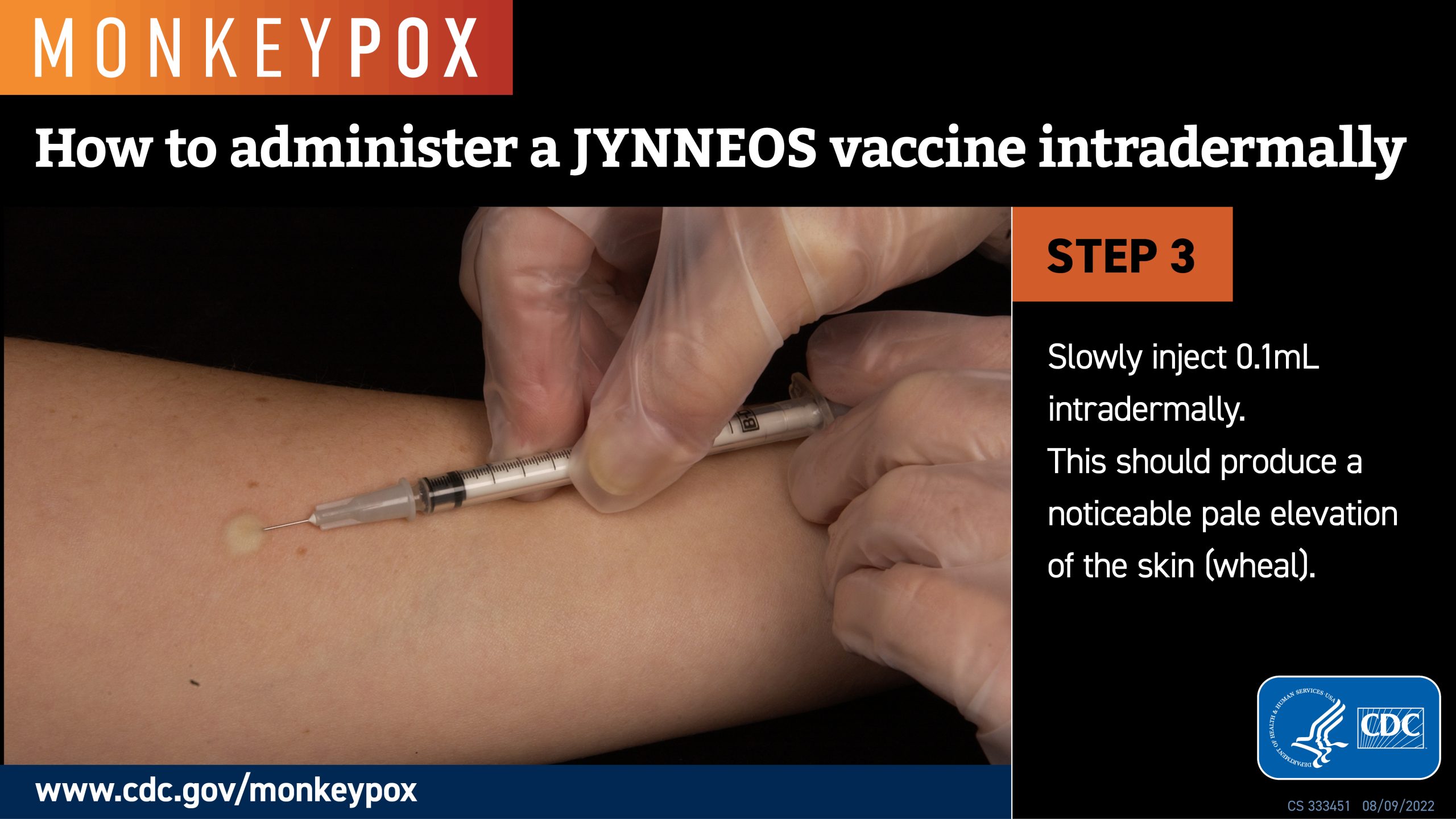People more likely to get MPOX include:
- People who are aware that one of their sexual partners in the past 2 weeks has been diagnosed with MPOX.
- People who had multiple sexual partners in the past 2 weeks in an area with known MPOX.
- People whose jobs may expose them to orthopoxviruses, such as:
- Laboratory workers who perform testing for orthopoxviruses
- Laboratory workers who handle cultures or animals with orthopoxviruses
- Some designated healthcare or public health workers
- CDC recommends vaccination for people who have been exposed to MPOX and people who may be more likely to get MPOX.
Vaccine protection
The preferred vaccine to protect against MPOX is JYNNEOS, which is a two-dose vaccine. It takes 14 days after getting the second dose of JYNNEOS for its immune protection to reach its maximum.
The ACAM2000 vaccine may be an alternative to JYNNEOS. ACAM2000 is a single-dose vaccine, and it takes four weeks after vaccination for its immune protection to reach its maximum. However, it has the potential for more side effects and adverse events than JYNNEOS. It is not recommended for people with severely weakened immune systems and several other conditions.
People should take precautions to reduce their exposure to MPOX until immune protection from vaccines has reached its maximum. Consult your healthcare provider to see if you should get vaccinated against MPOX, and if you should receive ACAM2000 instead of JYNNEOS.

